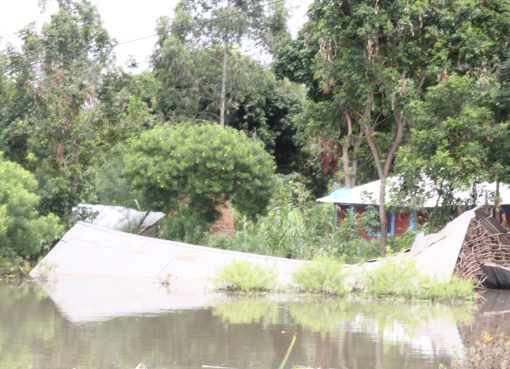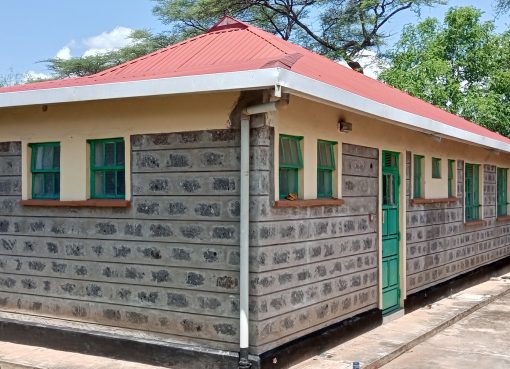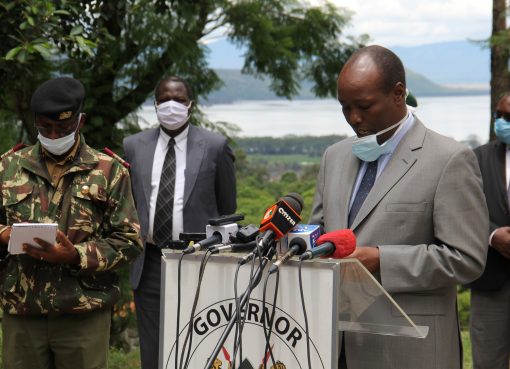The value of horticultural produce exported in 2021 increased by 5.1 per cent from 2020 and the trend is likely to continue as shown by the impressive 2022 January to March quarterly data.
The quarterly data indicate the country exported horticultural produce worth over Sh26 billion from a volume of 2.2 thousand metric tonnes.
Agriculture Cabinet Secretary, Peter Munya on Thursday warned that the impressive growth could be threatened by pests’ particularly false codling moth on roses and avocados, which are the leading export flowers and fruits respectively.
Speaking during a ground-breaking ceremony for a hot water treatment facility at the Horticultural Crops Directorate (HCD) Centre in JKIA, Munya said the country must move with speed to quickly tap the great fortunes of the horticulture industry in order to improve social economic welfare for communities.
“This hot water treatment facility will revitalize and expand the horticulture export business by improving market access therefore cementing Kenya’s position as a leading exporter of fresh horticulture produce on the global market”, he noted.
Munya added that the Horticulture Centre has been instrumental in supporting over 500 small and medium size enterprises owned by the youth and women.
The CS explained that the global experience shows that hot water treatment is a viable intervention for fruit fly and added that by putting up the facility, Kenya will not only increase quality and value of export mangoes but will be able to enter other new lucrative markets.
“Kenya is now at a trajectory phase to regain its market share in EU and win more markets thus it is apparent that this project we are launching today will create numerous jobs along the value chain for our country upon completion,” he said.
He further said the project will not only ease the marketing challenges that farmers constantly face but, on the demand side, Kenya’s fresh horticultural produce will have preferential market access to the international market.
Munya noted that Kenya has other attractive market access agreements with the European Union that provide significant export opportunities for our horticulture produce.
“In a couple of months, another project, the construction of a fumigation facility for avocado and flowers for the Chinese and Australian markets respectively will be started,” Munya said.
According to the CS, the two projects will be fully funded by government at a cost of Sh132 million.
He called on County Governments in the respective horticulture crops growing regions to support implementation of these projects by providing complimentary support services that include extension services to farmers.
HCD Director Benjamin Tito said for the last six months from January to June this year they have shipped flowers worth Sh4 billion, Sh44 billion fruits and Sh26 billion vegetables and noted this is only half-year performance.
“We may be able to surpass what we exported last year and that is a total volume of Sh157 billion”, he noted saying this is a clear indication that the hot water treatment facility will assist in further enhancing Kenya’s horticulture exports to the international markets.
Makueni based farmer Phyllis Nduva said as farmers in one of the major Counties that export mangoes, the biggest challenge they have been experiencing was many post-harvest losses due to fruit flies
“Makueni has over 4 million trees and when one looks at what we are producing and what we are getting, it is very minimal and this is because of the fruit flies”, Nduva said.
Nduva remarked that through HCD, KEPHIS and other stakeholders, they have been leading in a campaign dubbed “Komesha Fruitfly” but now with the water treatment plant, it will assist farmers address the fruit fly menace, farmers will stop losing their mango fruit and now be able to produce and export their mangoes to European countries.
The Chairman of the National Horticulture Task Force, Clement Telezi said as a private sector, they laud the government’s objective to grow the sector and added that Mango growing has become one of the products they have been monitoring keenly.
“We have upped our game as a major exporter of cut flowers and ornamentals and also some varieties of vegetables, now it’s time for fruits. We have made strides on avocadoes and now the next product is mango”, Telezi said.
Telezi noted that the hot water treatment will address challenges that the country has been facing in terms of quality and production.
“We can now compete with giants like India who are the major exporters of the world by looking at what we grow and move with speed and increase our exports given currently only 4 per cent of what we produce is exported
Fresh horticulture produce exports has continues to be one of the leading foreign exchange earners for the country. The total value of horticultural produce exported in 2021 increased from Sh150 billion in 2020 to 157.6 billion in 2021 while volumes increased by 29 per cent from 314,000 metric tonnes in 2020 to 406,000 metric tonnes in 2021.
The Government has for the last few years been reviving and modernizing all vital agricultural value chains of coffee, tea, dairy, sugar, pyrethrum and cotton through targeted and deliberate interventions that include increased budgetary allocations, supportive fiscal regimes and institutional reforms.
By Wangari Ndirangu





